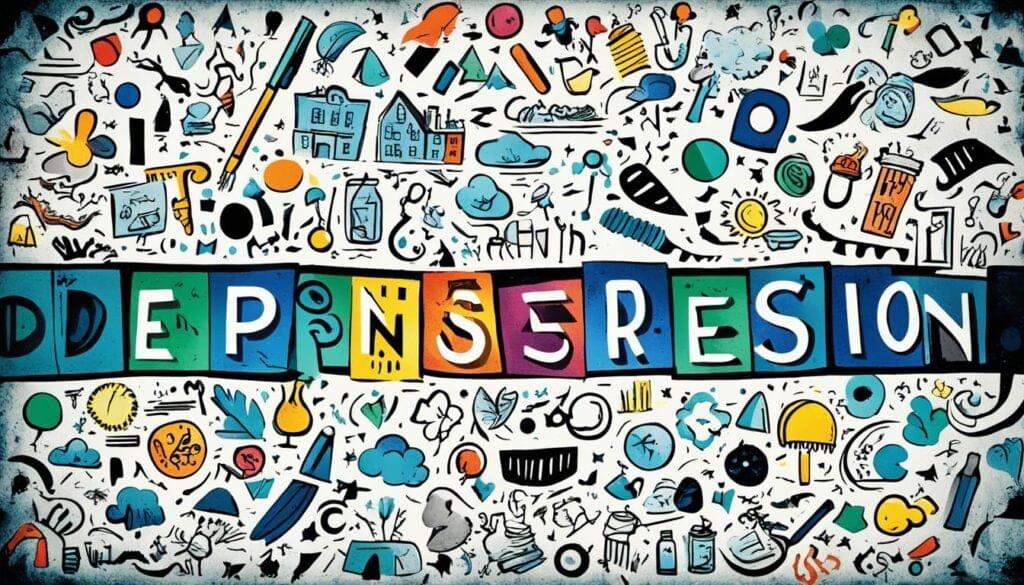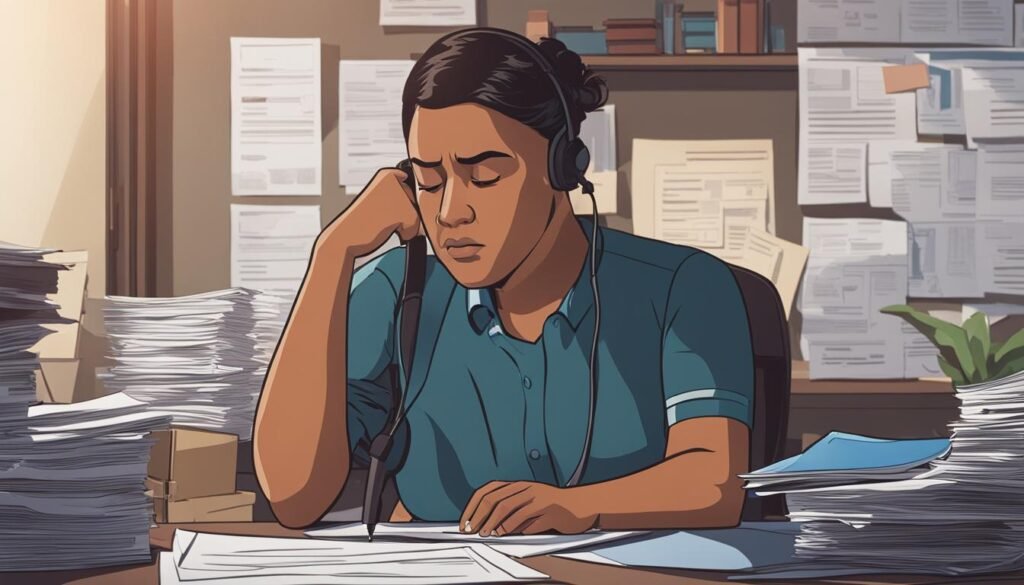Depression is a complex mental health condition that can have a profound impact on a person’s daily life. It can affect their ability to work, engage in social activities, and perform everyday tasks. If you or someone you know is struggling with depression, you may be wondering if it can be considered a disability. Understanding the eligibility criteria for depression as a disability is crucial for accessing the necessary support and resources.
In this article, we will delve into the multifaceted nature of depression as a disability and explore the legal recognition it receives. We will also discuss the financial aid and support available for individuals with depression-related disabilities, as well as navigate the application process for disability benefits. Additionally, we will shed light on the accommodations and adjustments that can be made in the workplace to support individuals with depression.
By the end of this article, you will have a comprehensive understanding of the eligibility requirements for considering depression as a disability, the legal framework surrounding it, the available benefits, and the necessary steps to access them. Let’s dive in and explore this important topic together.
Key Takeaways:
- Depression can significantly impact a person’s daily life, including their ability to work and function.
- Understanding the eligibility criteria for depression as a disability is essential for accessing support and resources.
- Depression is legally recognized as a disability under the Americans with Disabilities Act (ADA).
- Financial aid and support, such as Social Security benefits and Medicaid, are available for individuals with depression-related disabilities.
- The application process for disability benefits requires specific documentation and can be submitted online, via phone, or in-person.
- Reasonable accommodations can be made in the workplace to support individuals with depression.
The Multifaceted Nature of Depression as a Disability
Depression is a complex condition that affects individuals in multifaceted ways, both physically and mentally. Understanding the various aspects of depression is crucial for recognizing it as a disability and providing the necessary support. This section will delve into the medical definition of depression, explore the spectrum of symptoms associated with the condition, and assess how depression impacts an individual’s work life.
Defining Depression in Medical Terms
Depression, also known as major depressive disorder (MDD), is a mental health condition characterized by persistent feelings of sadness, low mood, and a loss of interest or pleasure in activities. It affects a person’s emotional and cognitive functioning, leading to changes in behavior, thoughts, and physical well-being. The Diagnostic and Statistical Manual of Mental Disorders (DSM-5) provides specific criteria for diagnosing depression, such as experiencing these symptoms for at least two weeks.
Exploring the Spectrum of Depression Symptoms
The symptoms of depression can vary widely among individuals, making it a complex and nuanced condition. Common symptoms include persistent feelings of sadness, irritability, loss of energy, changes in appetite and sleep patterns, difficulty concentrating, and thoughts of self-harm or suicide. It’s important to note that symptoms can manifest differently in different people, and the severity and duration can also vary.

Assessing Disability: How Depression Affects Work Life
Depression can significantly impact a person’s ability to function effectively in the workplace. The symptoms of depression, such as lack of energy, difficulty concentrating, and changes in sleep patterns, can affect productivity, decision-making, and overall job performance. Additionally, depression may lead to absenteeism, presenteeism (being physically present but not fully engaged), and strained relationships with colleagues. These factors can create a hostile work environment and hinder career advancement.
| Impact on Work Life | Examples |
|---|---|
| Reduced productivity | Difficulty meeting deadlines, decreased quality of work |
| Interpersonal challenges | Conflict with coworkers, strained professional relationships |
| Attendance issues | Increased absences, frequent tardiness |
| Difficulty concentrating | Problems with focus, memory, and decision-making |
This table provides examples of how depression can impact work life, highlighting the real challenges individuals may face in maintaining employment and performing at their best.
Legal Recognition of Depression as a Disability
This section will focus on the legal recognition of depression as a disability. It will discuss the Americans with Disabilities Act (ADA) and how depression is protected under this legislation. It will also provide an overview of the rights and protections that individuals with depression have under disability discrimination laws. By examining the legal framework, readers will gain a comprehensive understanding of how depression is recognized as a disability and the rights they are entitled to.
Financial Aid and Support for Depression-Related Disabilities
In order to provide support and assistance to individuals with depression-related disabilities, various forms of financial aid are available. These resources aim to alleviate financial burdens and ensure that individuals can access the necessary care and support for their mental health needs. This section explores the different avenues of financial aid and support that individuals can pursue.
Social Security Benefits: SSDI and SSI Explained
One valuable source of financial aid for individuals with depression-related disabilities is the Social Security Administration (SSA). The SSA offers two main programs for individuals with disabilities: Social Security Disability Insurance (SSDI) and Supplemental Security Income (SSI).
SSDI is designed for individuals who have a work history and have made a sufficient number of contributions to the Social Security system. To qualify for SSDI, individuals must meet specific criteria, including having a severe mental health condition that prevents them from maintaining substantial gainful employment.
SSI, on the other hand, is a means-tested program intended for individuals with limited income and resources. Eligibility for SSI is based on financial need and disability status. Individuals with depression who meet the SSA’s definition of disability may qualify for SSI benefits.
Discrepancies in Awarding Disability Benefits for Depression
Although depression is recognized as a disability by the SSA, there can be discrepancies in the evaluation and awarding of disability benefits for individuals with depression. This can lead to challenges in securing the financial aid they need. The evaluation process for depression requires thorough documentation and evidence of the severity and impact of the condition on the individual’s ability to work.
It is important for individuals with depression-related disabilities to gather comprehensive medical records, including documentation from mental health professionals, to support their claim for disability benefits. Seeking assistance from a qualified attorney or advocate who specializes in disability cases can also be beneficial in navigating the complexities of the evaluation process.
Understanding the Role of Medicaid in Mental Health Care
Medicaid plays a crucial role in providing mental health care and support for individuals with depression. As a joint federal and state program, Medicaid offers health coverage to low-income individuals, including those with disabilities.
Medicaid can provide coverage for a range of mental health services, including therapy, medication, and hospitalization. This can significantly reduce the financial burden of treatment for individuals with depression, ensuring access to necessary care and support. In some cases, Medicaid may even cover supportive services, such as case management, to help individuals with depression manage their condition effectively.

Overall, financial aid and support are available for individuals with depression-related disabilities through programs such as Social Security benefits and Medicaid. These resources aim to alleviate financial stress and provide access to necessary care and support for individuals with depression. By understanding the eligibility criteria and navigating the application process, individuals can access the financial assistance they need to manage their condition effectively.
Navigating the Application Process for Disability Benefits
Applying for disability benefits can be a complex and overwhelming process. This section will provide you with a comprehensive guide on how to navigate the application process for disability benefits related to depression. By following these steps, you can ensure a smooth and efficient application experience.
Required Documentation for Benefit Eligibility
In order to establish eligibility for disability benefits, there are certain documents and information you will need to provide. These may include:
- Medical records: Documentation from healthcare professionals that supports your diagnosis of depression and outlines the impact of the condition on your daily life and ability to work.
- Treatment history: Information about the treatments you have received for depression, such as medications, therapy sessions, and hospitalizations.
- Work history: Details of your past employment, including dates and job responsibilities, to demonstrate your work history and the impact of depression on your ability to perform job tasks.
- Income information: Documentation of your current and past income to assess your eligibility for certain types of disability benefits.
- Personal information: Identification documents, such as your social security number and birth certificate, to verify your identity.
It is essential to ensure that you have all the required documentation before initiating the application process. This will prevent any delays or complications in the evaluation of your disability claim.
Step-by-Step Application Guide
Follow these step-by-step instructions to complete the application process for disability benefits:
- Gather the required documentation: As mentioned earlier, collect all the necessary documents to support your disability claim.
- Complete the application form: Fill out the disability benefits application form accurately and provide all the requested information.
- Include detailed information: Be thorough when describing your symptoms, the impact of depression on your daily life, and your inability to work.
- Submit supporting evidence: Attach any additional supporting evidence, such as medical reports or letters from healthcare professionals, that can strengthen your case.
- Review and double-check: Before submitting your application, review it carefully to ensure all information is accurate and complete.
Submitting Your Claim: Online, Phone, or In-Person
There are multiple options for submitting your disability claim:
- Online: Many government agencies provide online portals where you can submit your application electronically. This option allows for convenient and efficient submission from the comfort of your home.
- Phone: Some agencies offer a toll-free number that you can call to apply for disability benefits over the phone. This option may be suitable for individuals who prefer verbal communication or need assistance with the application process.
- In-Person: If you prefer face-to-face interactions, you can visit a local government office to submit your disability claim in-person. This option allows for direct communication and the opportunity to ask any questions you may have.
Choose the option that best suits your needs and preferences to initiate the submission of your disability claim.
By following this step-by-step application guide and submitting all the required documentation, you can maximize your chances of a successful disability benefits application for depression.

“Is Depression a Disability”: Clarifying Eligibility Requirements
When it comes to considering depression as a disability, it is important to clarify the eligibility requirements. Many individuals may have misconceptions or questions about the criteria for determining disability status in relation to depression. By providing clear explanations and clarifications, we can ensure a better understanding of the specific eligibility requirements for depression as a disability.
Depression is a complex mental health condition that can have a significant impact on a person’s daily life and ability to function. However, not everyone with depression automatically qualifies for disability benefits. The eligibility requirements for depression as a disability vary depending on several factors, such as the severity and duration of the condition, the impact on daily functioning, and the ability to work.
It is important to note that simply being diagnosed with depression does not automatically make an individual eligible for disability benefits. The key consideration is how the depression affects the person’s ability to engage in substantial gainful activity (SGA). SGA refers to the ability to perform work that earns a certain level of income, as defined by the Social Security Administration (SSA).
The specific eligibility requirements for depression as a disability are outlined by the SSA in the Blue Book, which is a manual used by disability examiners to evaluate medical conditions. The Blue Book provides criteria that need to be met in order to determine whether an individual’s depression qualifies as a disability.
Some of the criteria for eligibility may include:
- Medical evidence of the diagnosis of depression
- Evidence of the severity and duration of symptoms
- Documentation of functional limitations and their impact on daily activities
- Proof of unsuccessful attempts to work or engage in SGA
It is essential to gather all relevant medical records, treatment history, and supporting documentation that demonstrate the impact of depression on an individual’s functioning and ability to work. Adequate documentation is crucial in providing strong evidence to support a disability claim.
When applying for disability benefits for depression, it is recommended to consult with a qualified disability attorney or advocate who specializes in Social Security Disability law. They can provide guidance on the specific eligibility requirements and help navigate the application process.
By clarifying the eligibility requirements for depression as a disability, individuals can have a better understanding of the criteria that need to be met for disability benefits. It is important to gather thorough documentation and seek professional assistance when applying for these benefits to maximize the chances of a successful claim.
Accommodations and Adjustments in the Workplace
Workplace accommodations for depression are crucial in ensuring that individuals with mental health conditions can thrive and be productive in their jobs. The Americans with Disabilities Act (ADA) recognizes that depression can be a disability and mandates employers to provide reasonable accommodations to employees with depression.
The ADA’s Stance on Employment and Depression
The ADA prohibits discrimination against individuals with disabilities, including those with depression, in all aspects of employment. Employers are required to provide reasonable accommodations to qualified individuals with depression, as long as the accommodations do not pose an undue hardship on the employer.
Reasonable accommodations for employees with depression may include:
- Flexible work hours or schedule adjustments to accommodate therapy sessions or medical appointments.
- Modifications to workload or deadlines to reduce stress and prevent burnout.
- Providing a quiet and private workspace to minimize distractions and promote focus.
- Allowing for telecommuting or remote work options to create a more comfortable and conducive work environment.
- Implementing a stress management program or Employee Assistance Program (EAP) to support employees’ mental well-being.
Examples of Reasonable Accommodations for Mental Health
Employers can make numerous adjustments to support employees with mental health conditions, including depression. Here are some examples of reasonable accommodations:
| Accommodation | Description |
|---|---|
| Flexible Schedules | Allowing employees to modify their start and end times or take breaks as needed. |
| Modified Duties | Adjusting job responsibilities to focus on essential tasks and reducing non-essential or non-urgent demands. |
| Workplace Modifications | Creating a quiet and comfortable workspace or providing assistive technology to accommodate specific needs. |
| Leave of Absence | Granting a temporary leave to seek treatment or manage symptoms. |
| Lower Stress Environment | Implementing stress reduction programs or making changes to promote a harmonious workplace. |
Advocating for Your Rights as an Employee
As an employee with depression, it’s important to be aware of your rights and advocate for yourself in the workplace. Here are some steps you can take:
- Understand the ADA: Familiarize yourself with the rights and protections provided by the ADA for individuals with disabilities, including depression.
- Know your rights: Learn about your specific rights as an employee with depression, including the right to reasonable accommodations.
- Communicate with your employer: Clearly articulate your needs and requirements, including the specific accommodations that would enable you to perform your job effectively.
- Document conversations and requests: Keep a record of any discussions or requests regarding accommodations to ensure accountability.
- Seek support: If you face challenges or encounter resistance in obtaining accommodations, consider seeking guidance from a disability advocacy group or legal counsel.
By understanding your rights, advocating for reasonable accommodations, and working collaboratively with your employer, you can create an inclusive work environment that supports your well-being and productivity.
Conclusion
In conclusion, depression can be considered a disability, and individuals experiencing this mental health condition may be eligible for various benefits and support. Throughout this article, we have explored the multifaceted nature of depression as a disability, from defining it in medical terms to understanding its impact on work life. We have also discussed the legal recognition of depression as a disability under the Americans with Disabilities Act (ADA) and the rights and protections individuals have under disability discrimination laws.
Financial aid and support for depression-related disabilities are available, with Social Security benefits such as Social Security Disability Insurance (SSDI) and Supplemental Security Income (SSI) providing financial assistance to qualified individuals. It is important to note that there may be discrepancies and challenges in the process of awarding disability benefits for depression, and the role of Medicaid in mental health care should not be overlooked.
Navigating the application process for disability benefits can be complex, requiring the submission of required documentation and careful attention to detail. However, once you understand the process, you can choose the most suitable option for submitting your claim, whether it is online, over the phone, or in-person.
Lastly, we have discussed the accommodations and adjustments that can be made in the workplace to support individuals with depression. The ADA’s stance on employment and depression ensures that employees with depression have rights and protections, and reasonable accommodations can be made to create an inclusive work environment. By advocating for your rights as an employee, you can ensure that you receive the necessary support to thrive in your professional life.
FAQ
Is depression a disability?
Yes, depression can be considered a disability if it significantly impacts a person’s daily life and ability to work or function.
What are the criteria for depression to be considered a disability?
The criteria for depression to be considered a disability include experiencing significant limitations in daily life, having a diagnosed depressive disorder, and meeting specific eligibility requirements for disability benefits.
How does depression affect work performance?
Depression can affect work performance by causing difficulties with concentration, motivation, decision-making, and interpersonal relationships. It can also lead to absenteeism, decreased productivity, and an overall decline in job performance.
What legal protections exist for people with depression as a disability?
People with depression as a disability are protected under the Americans with Disabilities Act (ADA) and have rights and protections against disability discrimination in various aspects of life, including employment.
How can individuals with depression qualify for Social Security disability benefits?
Individuals with depression can qualify for Social Security disability benefits by meeting the Social Security Administration’s criteria for a depressive disorder and providing medical documentation to establish the severity and impact of their condition.
What documentation is required when applying for disability benefits for depression?
When applying for disability benefits for depression, individuals typically need to provide medical records, treatment history, clinical evaluations, and other supporting evidence that demonstrates the severity and impact of their depressive disorder.
How can I advocate for my rights as an employee with depression?
You can advocate for your rights as an employee with depression by understanding your legal protections, requesting reasonable accommodations, educating your employer about depression and its impact on your work, and seeking support from mental health professionals and support networks.










